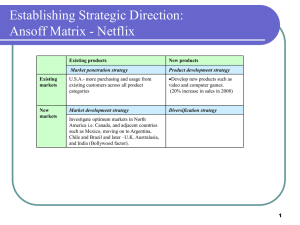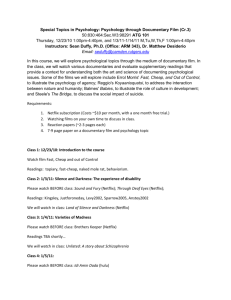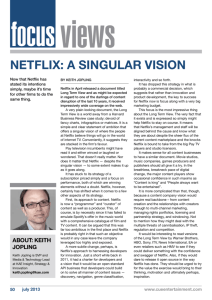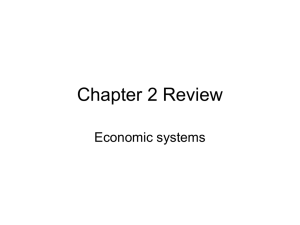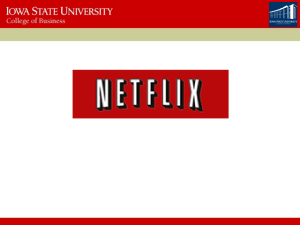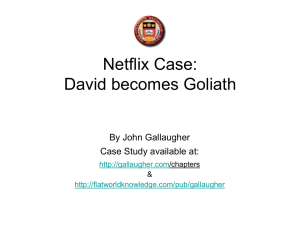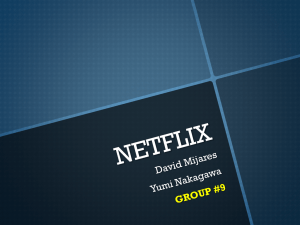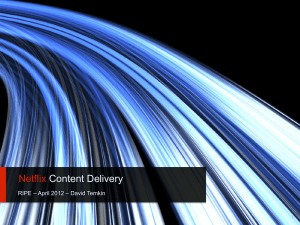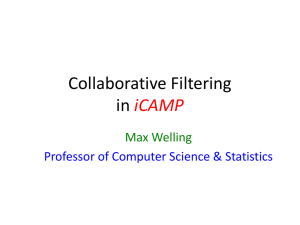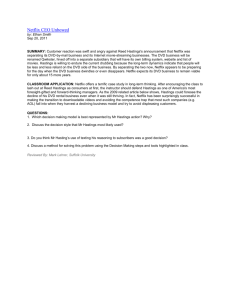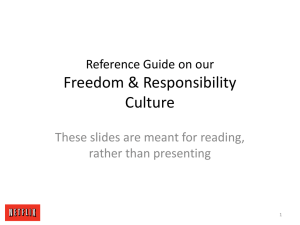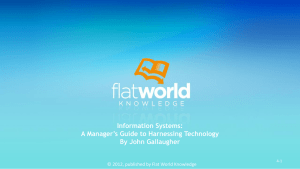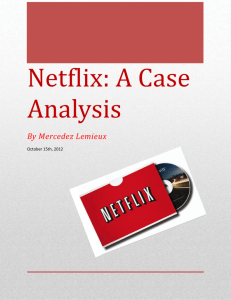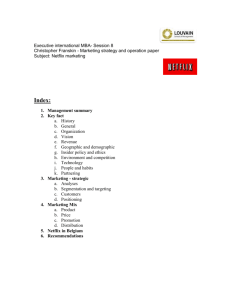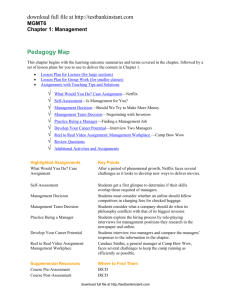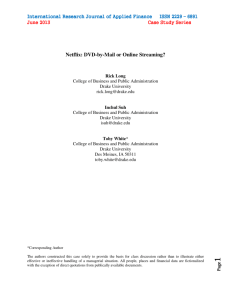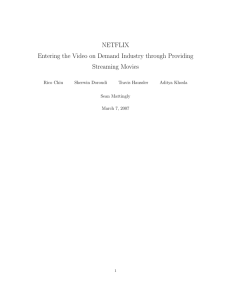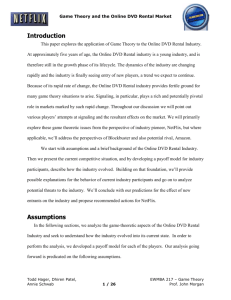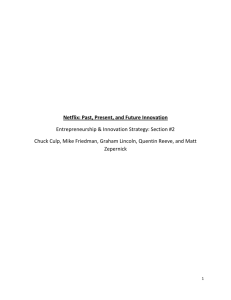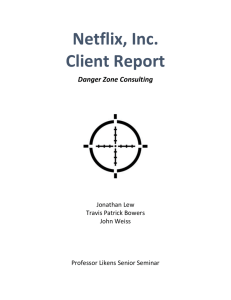Strategy and Netflix, Act II
advertisement
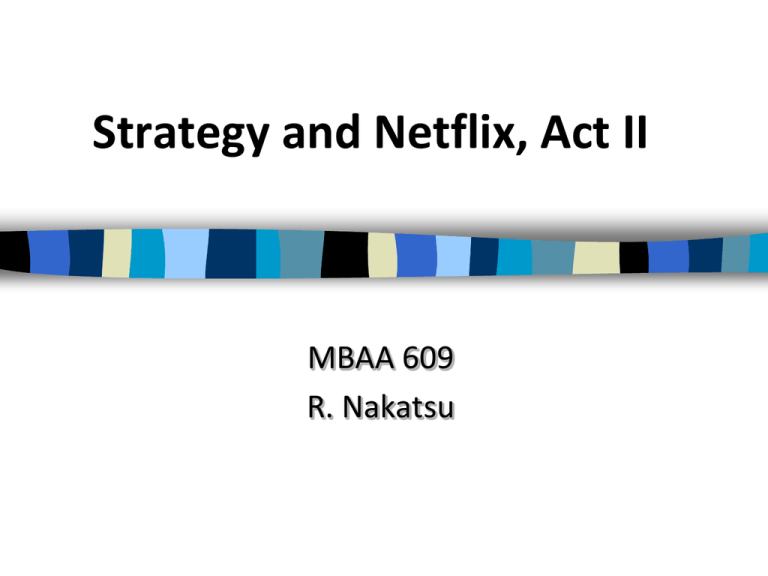
Strategy and Netflix, Act II MBAA 609 R. Nakatsu The Temporary Competitive Advantage A company gains a competitive advantage by providing a product or service in a way that customers value more than the competition’s. First mover advantage refers to a company that is first to market with a new product or service. A company has a sustainable competitive advantage when its financial performance consistently outperforms its industry peers. The Competitive Forces Model... is a tool to formulate strategy by examining the environment in which your organization competes. Five forces create the competitive environment: 1. Buyer power 2. Supplier power 3. Substitute force 4. New competition force 5. Current competition force The Competitive Environment Bargaining Power of Suppliers Threat of New Entrants Rivalry Among Existing Competitors Threat of Substitutes Bargaining Power of Customers Countering Competitive Forces Four strategies: Low-cost leadership Product differentiation Focus on market niche Linkage (strengthen customer loyalty, strengthen supplier intimacy) Creating Linkage with Customers Linkage refers to creating a tighter relationship with customers. Some forms of linkage: Build in switching costs – Question: What are the sources of switching costs? Create “sticky” web sites – See Business Week article, “Creating Web Addicts For $10,000 a Month” Network Effects (also known as network externalities) The Value Chain Method views the organization as a set of activities through which a product or service is created and delivered to customers. Value chain processes fall into two categories: Primary activities: most directly related to the production and distribution of a firm’s products and services Support activities: make the delivery of the primary activities possible; consists of infrastructure, HR, technology and procurement. The Value Chain Administrative Coordination & Support Services Human Resource Management Technology Development Procurement of Resources Inbound Outbound Operations Logistics Logistics Marketing Customer and Service Sales How does a firm use the Value Chain Method? 1. An analysis of a firm’s value chain can reveal operational weaknesses. Technology can be used to improve and address the weaknesses. 2. Firms can use the value chain as a framework to differentiate its business processes from that of its competitors. Question: How does a firm use the value chain method to create a sustainable competitive advantage? Netflix, Act II Business Model(s) Netflix 1.0: DVD by Mail, flat fee per DVD rental plus S&H, primary target was early adopters of DVD players (focus on market niche) Netflix 2.0: DVD by Mail, monthly subscription, unlimited exchanges, no late fees, next-day delivery of DVDs. Netflix 3.0: ??? Netflix 4.0: ??? Supplier Power Issues See Question 2: What challenges does the new Netflix face in acquiring video content? • Issues increasing supplier power (negatives for Netflix) • Issues decreasing supplier power (positives for Netflix Netflix and Linkage • What are some of the actions that Netflix took to support customer-side linkage? • What are some of the actions that Netflix took to support supplier-side linkage? See Question 3. Describe some of the partnerships that support Netflix’s strategies to become a low-cost provider of video streaming. Data Analytics Big Data: Collecting and analyzing massive and complex data sets to gain insights. See Question 4. How does Netflix use its data to support its decision-making and strategies? Assessing Firm Competiveness See Question 5. According to the chapter, what are some of the biggest competitive threats that Netflix faces today? • What companies/trends are competitive threats to Netflix today? • Use Porter’s Five Forces Model to analyze Netflix’s competitive position.
